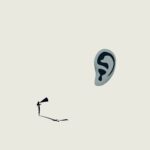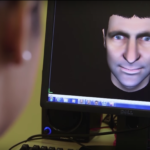
Charlotte Huggett reflects on a qualitative study exploring the perspectives of people with psychosis receiving Acceptance and Commitment Therapy following a first episode of psychosis.
[read the full story...]
Charlotte Huggett reflects on a qualitative study exploring the perspectives of people with psychosis receiving Acceptance and Commitment Therapy following a first episode of psychosis.
[read the full story...]
Lorna Collins reflects on a systematic review exploring the benefits of Hearing Voices and other self-help groups for people with auditory hallucinations.
[read the full story...]
Charlotte Huggett and Sophie Paul explore an important review looking at the content and modality of hallucinations in prelingually deaf people with schizophrenia.
[read the full story...]
Hearing voices is common in young people. In this #CAMHScampfire blog, Douglas Badenoch looks at a new qualitative study of the experiences of people aged 13-18 who hear voices but who do not have any clinical diagnosis.
[read the full story...]
A group of psychiatrists from the Springfield University Hospital Journal Club summarise a recent qualitative study about the socioeconomic factors involved in recovery for people with psychosis.
[read the full story...]
Sarah Carr explores a recent cross-sectional study on sexual minority status and symptoms of psychosis, which looks at the role of bullying, discrimination, social support and drug use.
[read the full story...]
Joe Barnby summarises a recent RCT in The Lancet Psychiatry of AVATAR therapy for auditory verbal hallucinations in people with psychosis.
[read the full story...]